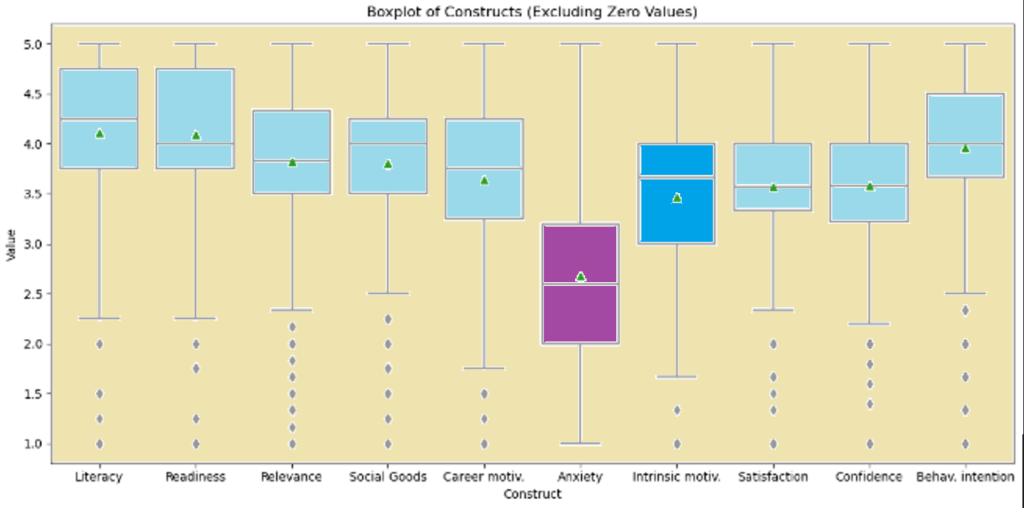The rise of AI has sparked a wave of research on how individuals, especially students, are preparing for an AI-driven world. Several studies have focused on the development of AI literacy, attitudes towards AI, the role of education in preparing students for AI, and the socio-economic implications of AI for future career prospects.
Our AI literacy survey, conducted over two years and involving over 1,000 students, yielded several interesting findings:
- Men demonstrated higher levels of AI readiness and satisfaction with AI learning than women. Men were also more likely to perceive AI as relevant to their future careers. This finding may suggest a need for initiatives to promote women’s engagement and interest in AI.
- Students in IT-related fields exhibited significantly higher levels of AI readiness and satisfaction with learning AI compared to students in other fields. This difference might stem from the inherent alignment of IT studies with AI concepts, leading to a more informed and prepared outlook.
- Interestingly, satisfaction with learning AI did not necessarily increase with the year of study. The study showed mixed results with some questions indicating higher satisfaction in early years while others showed a slight decrease in later years. This challenges the assumption that continuous exposure to AI necessarily leads to greater satisfaction and hints at the complexities of student perception towards AI throughout their education.
- The study also found that the year in which the survey was taken influenced student satisfaction levels, potentially due to major developments in AI technology. A notable increase in satisfaction was observed in 2023, coinciding with the release of advanced AI models, suggesting that technological advancements and their visibility play a role in shaping student perceptions.
These findings highlight the need for tailored educational approaches that consider individual backgrounds and evolving technological landscapes. Promoting AI literacy and readiness among diverse groups requires an understanding of these nuanced differences
For more information, see the final study at R13-Professional education in AI.

